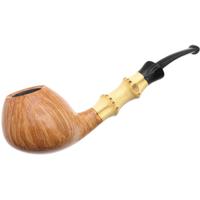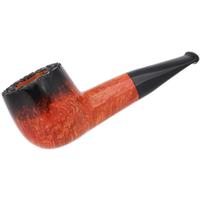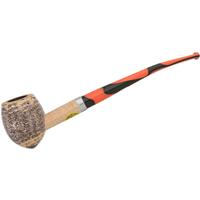Given how much tobacco is now produced in the developing world, wouldn't it make sense for its growers, pickers etc to come under some sort of Fairtrade-esque protections, similar to what already covers coffee and cocoa beans and so on? Of course, that will probably never happen due to political correctness, the irony of which is pretty damning.
Fairtrade Tobacco?
- Thread starter dryseason91
- Start date
- Status
- Not open for further replies.
Would you be willing to pay an additional premium for a "Fair Trade" label on your C&D tin? It's all pretty much a marketing ploy. Growers may (perhaps, sometimes) make more for their product, it depends on the contract they agree too and what the commodities market is doing, but the real money in Fair Trade goods is made by the marketer, not the grower.
Somehow, I think, this isn't a good fit for tobacco and tobacco consumers. Tobacco is already far more expensive than it should be because of taxes. And I don't think that most tobacco consumers are going to perceive any added value to the label, and they certainly don't want to pay more for it.
Organic tobacco, though, has worked in the cigarette market. There's a tangible perceived benefit there. I think that most cigarette smokers know that their habit is unhealthy, so the organic cigarette manufacturers have exploited that by insinuating that the real dangers of smoking comes from pesticides and the other crap not found in organically grown tobacco. It has failed with pipe tobacco in part due to the added costs involved, especially for small producers, with certification and production, especially for small producers, and a weak reception by customers.
Somehow, I think, this isn't a good fit for tobacco and tobacco consumers. Tobacco is already far more expensive than it should be because of taxes. And I don't think that most tobacco consumers are going to perceive any added value to the label, and they certainly don't want to pay more for it.
Organic tobacco, though, has worked in the cigarette market. There's a tangible perceived benefit there. I think that most cigarette smokers know that their habit is unhealthy, so the organic cigarette manufacturers have exploited that by insinuating that the real dangers of smoking comes from pesticides and the other crap not found in organically grown tobacco. It has failed with pipe tobacco in part due to the added costs involved, especially for small producers, with certification and production, especially for small producers, and a weak reception by customers.
Certainly, the actual degree of tangible benefit from Fairtrade is debatable, and without doubt it has an element of clever marketing about it. I don't know for sure, and I try not to be naive about these things. If, however, a Fairtrade-labelled product is demonstrably better for a poor producer vulnerable to corporate exploitation, then I'm willing to pay the little extra. My real gripe is the incompatibility between the desire to improve conditions for the producer in the developing world (good liberalism) and the vast unlikelihood of a Fairtrade label ever appearing on a tobacco tin, thanks to PC dogma (bad liberalism). [Insert 'not trying to get political' disclaimer here.]
I do not see Fair Trade taking root in this country. According to a Burley farmer I know the process works like this- The farmers contract with big tobacco. They grow their crop, cure it and then big tobacco finds a hundreds reasons why the tobacco is not up to the standards as set in the contract, therefore the farmer gets paid a smaller amount that originally agreed to. Big Tobacco has the farmers by the "kee-honies".
I believe the going price big tobacco pays farmers is slightly less than $2.00/lb. In order for a Fair Trade system to work you would have to get a fair amount of farmers to sign up and pay them a more reasonable rate, say $4.00/lb. This cost will have to be passed on to the blenders and then ultimatley the consumer.
I believe the going price big tobacco pays farmers is slightly less than $2.00/lb. In order for a Fair Trade system to work you would have to get a fair amount of farmers to sign up and pay them a more reasonable rate, say $4.00/lb. This cost will have to be passed on to the blenders and then ultimatley the consumer.
Jitterbug, do you mean that's the situation in the US? Fairtrade is designed (ideally) for what used to be called the Third World. A lot of tobacco these days comes from Africa and India, not to mention the poorer countries involved in Oriental leaf production.
Ultimately yes, Fairtrade and similar programmes mean a higher price point for the consumer.
Ultimately yes, Fairtrade and similar programmes mean a higher price point for the consumer.
"My real gripe is the incompatibility between the desire to improve conditions for the producer in the developing world (good liberalism) and the vast unlikelihood of a Fairtrade label ever appearing on a tobacco tin, thanks to PC dogma"
Conditions for the third-world producer are not determined, or indeed influenced much, by the first-world consumer. Their plight is controlled by the political situation in their own country. The notion that we, as benevolent caretakers, must improve the lot of the little dark folks is exceedingly misplaced. Change must come from within. One needs only look so far as Haiti to see that this is true. The US has spent more per capita on Haiti than it has on many areas of the US and yet, Haiti continues to be Haiti. Meanwhile, on the other end of the island, Dominica has chosen to run things a bit differently. Same island, different outcomes.
Conditions for the third-world producer are not determined, or indeed influenced much, by the first-world consumer. Their plight is controlled by the political situation in their own country. The notion that we, as benevolent caretakers, must improve the lot of the little dark folks is exceedingly misplaced. Change must come from within. One needs only look so far as Haiti to see that this is true. The US has spent more per capita on Haiti than it has on many areas of the US and yet, Haiti continues to be Haiti. Meanwhile, on the other end of the island, Dominica has chosen to run things a bit differently. Same island, different outcomes.
Reading a neo-colonialist subtext into these initiatives is one approach, but not the one I'd take. It's possible to want to limit exploitation in the developing world without a correlating ideological sense of shouldering the 'white man's burden' once again.The notion that we, as benevolent caretakers, must improve the lot of the little dark folks is exceedingly misplaced.
Undoubtedly, the political situation in these countries is largely the reason why those at the bottom of the production line - the growers and pickers and so on - are vulnerable to exploitation; they have little or no state protections. Responsible trading initiatives won't change national politics, and won't, technically, reduce those producers' vulnerablilty; but they will (or at least, should) create a situation where that vulnerability isn't exploited. The idea is simply to pay them more than the pittance they might otherwise receive, and establish farms and plantations where employees are given respectable conditions and working-hours. Western business does have a terrible track-record in the developing world, and the idea is to try to bring some redress to that legacy.
I don't think the foreign-aid issue is really analogous. This is more about ajusting business practices.
The only change that the concept of Fair Trade brings to the table is to ostensibly pay the growers more for their product. But, since there is no free lunch, there are usually strings attached. Growers usually have to enter into programs and contracts designed to change the way they produce their goods. Sometimes, they have to grow a different crop or strain. All that takes time and resources, resources that poor farmers do not have. Consequently, most Fair Trade farmers are corporately operated, and most of the Fair Trade bounty doesn't reach the poor.
I urge you to do more reading on the outcome of Fair Trade practices. There has been a lot written about it.
I urge you to do more reading on the outcome of Fair Trade practices. There has been a lot written about it.
Fair (ha!) enough. Either way, I don't think we're going to see Dunhill going all Starbuck's with the humanitarian promises.
Great topic
As with all things we consume there is a real need to ask these kind of questions. The discussion could also be extended to what in the UK is organic produce approved by the soil association. The question of premiums for artisan products is also worth a mention. Farmers getting screwed by big organisations is a reported problem in the UK where buyers from large supermarkets are not interested in building working relationships with farmers but simply beating down the price and wasting a lot of what is grown. I view my tobacco as a luxury and would be prepared to pay more for a product that I felt I could for want of a better word trust.
As with all things we consume there is a real need to ask these kind of questions. The discussion could also be extended to what in the UK is organic produce approved by the soil association. The question of premiums for artisan products is also worth a mention. Farmers getting screwed by big organisations is a reported problem in the UK where buyers from large supermarkets are not interested in building working relationships with farmers but simply beating down the price and wasting a lot of what is grown. I view my tobacco as a luxury and would be prepared to pay more for a product that I felt I could for want of a better word trust.
Daughters Ryan (D&R) has been working to give us Fair Trade tobacco in the US. He used the Fair Trade model to save the perique industry and get the Kentucky Dark Fired going. Whereas, with the market the way it was going, farmers were turning to soy and cotton for a living wage. And, not all tobacco is contracted by "big tobacco." There is still an open market here in the US for tobacco as an Ag. commodity. One of the reasons that most of the poorest districts still grow tobacco is because it's a commodity that can be stored in barns for years till the price is right to let it go, whereas if you grew tomatoes, if the price wasn't right at the time of harvest, you'd be screwed.
As far as African crops and other places, I am not completely sure. I do know that D&R are associated with American Spirit cigarettes, which delivers organic Free Trade cigs for only about a dollar more a pack in our area. American Spirits run $5.50 a pack and Camels are $4.50. So, I don't think the differences are astronomical, but it might be significant enough for some.
As far as African crops and other places, I am not completely sure. I do know that D&R are associated with American Spirit cigarettes, which delivers organic Free Trade cigs for only about a dollar more a pack in our area. American Spirits run $5.50 a pack and Camels are $4.50. So, I don't think the differences are astronomical, but it might be significant enough for some.
The law of supply and demand will see that all trade is fair in the end. It's the only thing that should determine price.
For what it's worth... Starbucks doesn't buy Fair Trade certified, Rainforest Alliance certified, Utz Kapeh certified or any other third-party sustainable certification. Or if they do, they don't label their coffees as such. Instead, Starbucks developed their own proprietary C.A.F.E. Practices program.I don't think we're going to see Dunhill going all Starbuck's with the humanitarian promises.
Even Fair Trade has struggled with the implications, and implementation, of a best practices approach to sustainable certification. A little over two years ago, Fair Trade USA left the Fair Trade Labeling Organization (an umbrella organization of 9 administrating agencies who oversee the use of the Fair Trade Trademark) over a debate on the certification of individual farmers. The FLO requires that farmers belong to cooperatives, or buying groups in order to reap the benefit of Fair Trade certification and labeling with the trademark. To this end, most of the work in origin countries is done with exporters, processors, and mill owners. Fair Trade USA wanted to develop a scheme for certifying individual farms (like Rainforest Alliance does), and tried to engage the rest of the FLO in adopting new processes and procedures. That didn't happen, and Fair Trade USA left the FLO. So now there are two separate entities with two separate logos both selling Fair Trade trademarks/certification.
Clear as mud?
To bring this back to tobacco... it would surprise me if FLO or FT/USA would even consider advertising that they were working with tobacco growers/processors/exporters given the black halo which rings all things tobacco in mass media today. For what it's worth, there is no mention of tobacco on the FLO website's discussion of the products they are currently focusing on.
-- Pat
That's spot on. If I pay you more for your product, and you hold a quality standard and production volume which we agree on, then you should be able to commit to continued delivery of that product and I should be able to commit to future business with you. If we renegotiate in the face of changing cost pressures, then we should be able to do so to allow us both to benefit. Relying solely on the commodity cost of items, putting pricing solely onto the pressures of supply and demand, is a risky business and by definition means that some years a crop will be good, and some years a crop will be... less than good.Paying farmers more for their crop is just good business for Mark Ryan, not benevolence.
I don't want to buy less than good products.
-- Pat
However, the differences are that he didn't wait till they were bankrupt and buy up the land and place minimum wage workers in the field. Whereas, in coffee, they would confiscate land through armed thugs and force labor to work the fields to give us our Maxwell House for a cheaper rate than our Starbucks or whatever other Fair Trade roasters there are. Although, I do find myself enjoying a nice cup of armed thug coffee right now, ha ha!!
The commodity game in coffee is a dodgy one... Folks buying commodity grade coffee really are buying "average grade" coffees at the price determined by the commodity market (NYCE for Arabicas and London Commodity Exchange for Robustas). This price swings violently based on time of year, weather, speculation and, of course, supply and demand. The thing that has the least impact on the commodity price of coffee is the quality of coffee.
This is why paying a premium for better quality coffee is just good business.
When buying coffee we buy two pieces, the commodity lot or future which defines the base price per pound of the coffee. One future/lot of coffee amounts to the current commodity price of coffee for a 37,500lb container/lot of coffee. So if I were going out to buy a lot of coffee on today's market I'd be first buying one future/lot of coffee at about $2.20USD/lb for 37,500lbs of coffee. That gets me my ticket to the dance. The next piece I have to buy/negotiate is the differential. The differential is the premium or discount applied to the coffee on a per pound basis. The differential is determined by overall coffee quality, availability, certification (sustainable or organic), demand and the volume of my purchase. The differential is negotiated between vendor and purchaser on a lot by lot basis.
In my 18 years in the coffee market I've seen the commodity price for coffee as low as $0.47/lb and as high as $3/lb. That price for the equivalent quality of the coffee you can buy in a big red, or blue, can. As those commodity prices go higher those manufacturers look for lower quality coffees to reduce their input costs. Likewise, as commodity prices go lower, producers of specialty grade coffees increase the differentials they demand for their coffees.
Sustainable certification plays a huge role in pricing, but at the end of the day can mean that the producer is reaping a greater financial reward, and is returning $$ in the form of increased labour costs to their workforce, and sustainable infrastructure on or near the farm.
-- Pat
This is why paying a premium for better quality coffee is just good business.
When buying coffee we buy two pieces, the commodity lot or future which defines the base price per pound of the coffee. One future/lot of coffee amounts to the current commodity price of coffee for a 37,500lb container/lot of coffee. So if I were going out to buy a lot of coffee on today's market I'd be first buying one future/lot of coffee at about $2.20USD/lb for 37,500lbs of coffee. That gets me my ticket to the dance. The next piece I have to buy/negotiate is the differential. The differential is the premium or discount applied to the coffee on a per pound basis. The differential is determined by overall coffee quality, availability, certification (sustainable or organic), demand and the volume of my purchase. The differential is negotiated between vendor and purchaser on a lot by lot basis.
In my 18 years in the coffee market I've seen the commodity price for coffee as low as $0.47/lb and as high as $3/lb. That price for the equivalent quality of the coffee you can buy in a big red, or blue, can. As those commodity prices go higher those manufacturers look for lower quality coffees to reduce their input costs. Likewise, as commodity prices go lower, producers of specialty grade coffees increase the differentials they demand for their coffees.
Sustainable certification plays a huge role in pricing, but at the end of the day can mean that the producer is reaping a greater financial reward, and is returning $$ in the form of increased labour costs to their workforce, and sustainable infrastructure on or near the farm.
-- Pat
Yep.You do this stuff for a living?
18 years in the coffee game.
My nerd-dom crosses multiple arenas.
-- Pat
- Status
- Not open for further replies.











